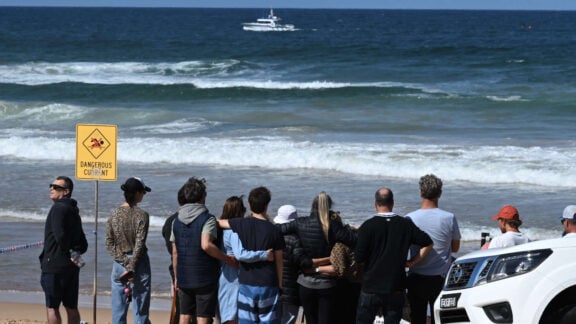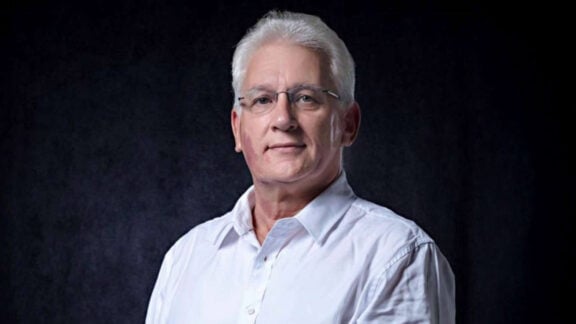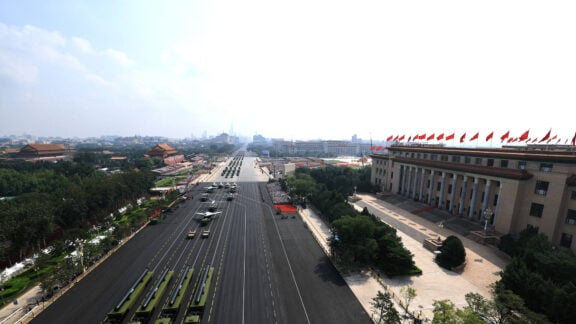A public hearing of the Government’s Joint Standing Committee on Migration has revealed that in 2009-10 only half the number of migrants who had come to Australia under the ‘Skilled Graduate’ category of the General Skilled Migration Program (GSM) had been able to secure skilled employment in the categories they had nominated.
The ‘Skilled Graduate’ category is largely made up of international undergraduate students who come to Australia to obtain qualifications with the intention of achieving permanent residency. The revelation surfaced in Skills Australia’s submission to the committee in Canberra last week, which drew on data from the Continuous Survey of Australian Migrants (CSAM) which is conducted by the Department of Immigration and Citizenship (DIAC). The GSM underpins Australia’s immigration policy.
That parts of the program are failing its core objective – to provide targeted skilled labour to meet skills shortages in the Australian labour force, “is a big worry” said the Committee’s Chair, Victorian Federal MP Maria Vamvakinou.” Those who are getting the work are coming through the employer nomination scheme, but others [skilled migrants entering Australia independently through the GSM] are getting through the points-test, and when they get here, they can’t get jobs. This is a crucial issue.”
Skills Australia is an independent statutory body providing advice to the Government on Australia’s workforce skills and development needs. Since 2010 it has also been a one-stop-shop to provide the government with a Skilled Occupation List (SOL) for migration planning, meant to ensure the GSM attracts migrants who have occupations and skills that meet Australia’s economic needs and skills shortages. Speaking to Neos Kosmos, Vamvakinou said some clear messages had come from Skills Australia’s submission to the cross-party enquiry into Australian migration trends, policies and effects.
“A lot of migrants coming in under the Skills Migration Program are having difficulty getting jobs in the areas that they are skilled in,” said the Victorian MP. She added that despite the points-test system, (including proficiency in the English language) being applied, limited English language proficiency “was the over-riding factor,” in relation to migrants who had been given visas under the GSM, and who then were unable to find skilled employment in the area they had nominated. “We’re trying to get a handle on what we need to do to address the problems, said Vamvakinou, who has responsibility for chairing the migration committee that will make potentially far-reaching recommendations to the government’s future labour migration policies.
“We’ll take further evidence and make recommendations that can address these issues. The most important at this stage is to identify the problems so that we don’t have people here who go to waste, and that we’re not bringing people here under false pretences.”
Skills Australia’s submission to the committee suggests that the reasons why skilled migrants are unable to find work having entered Australia under the GSM, included a “lack of consistent offshore skills assessment, meaning that skilled migrants may not be sufficiently qualified to perform their nominated occupation,” and “cultural and language barriers.” The agency’s submission went on to caution against relying on migrant skilled labour to meet skills shortages, at the expense of training and retraining Australia’s own domestic workforce. The GSM is also implemented through Employer Sponsored Workers category – which requires an employer to sponsor the applicant. Outside that category, the program targets professionals and other skilled workers who are not sponsored by an employer, but who have skills in occupations required by Australia, as listed in the Skilled Occupation List (SOL).
The SOL is produced for the Federal Government by Skills Australia and planning for the GSM is reviewed annually. Sue Beitz, Head of Skills Australia Secretariat, told Neos Kosmos that recent changes made to the GSM, including prioritising the employer nominated category and tightening how independent skilled migrants are assessed, would be seen in the future to be addressing the problems. “For independent skilled migrants, the points-test has now changed; they need more work experience. If you look at chefs, for instance, they can still be on a list for migration – as there’s a genuine shortage in that occupation, but an employer now needs to sponsor that person, so that you don’t have someone coming here as a chef, just hoping that they’ll get picked up in the market.”
The Joint Standing Committee on Migration has received over 500 submissions from individuals, academics and government departments. It will present its recommendations in February 2012. Meanwhile, industry weighed into the migration debate this week once again, with David Stewart, CEO of construction-giant Leighton Holdings re-igniting major differences of opinion between industry and the government over labour migration planning. The construction-giant supremo rounded on the government’s approach to migration, adding that union activity had become an unacceptable cost to productivity.
“Australia can capitalise on its gas and mineral wealth but we will be constrained by labour,” he said. Stewart maintains that Australia could surrender key benefits of the mining boom because Canberra refused to address the labour shortage in Western Australia.
“Government keeps the doors shut and won’t have migration to see people come in.” Referring to the resources boom in WA, Stewart said Australia would miss out on realising its fullest potential, unless the Government took steps to import workers in a similar way to nation-building projects of the past, such as the Snowy River damning scheme in the 1950s.
Those who wish to make a submission to the Joint Standing Committee on Migration can find further information at www.aph.gov.au/house/committee/mig/multiculturalism/subs.htm Those wishing to view Skills Australia’s submission, go to: www.aph.gov.au/house/committee/mig/multiculturalism/subs/sub344.pdf









